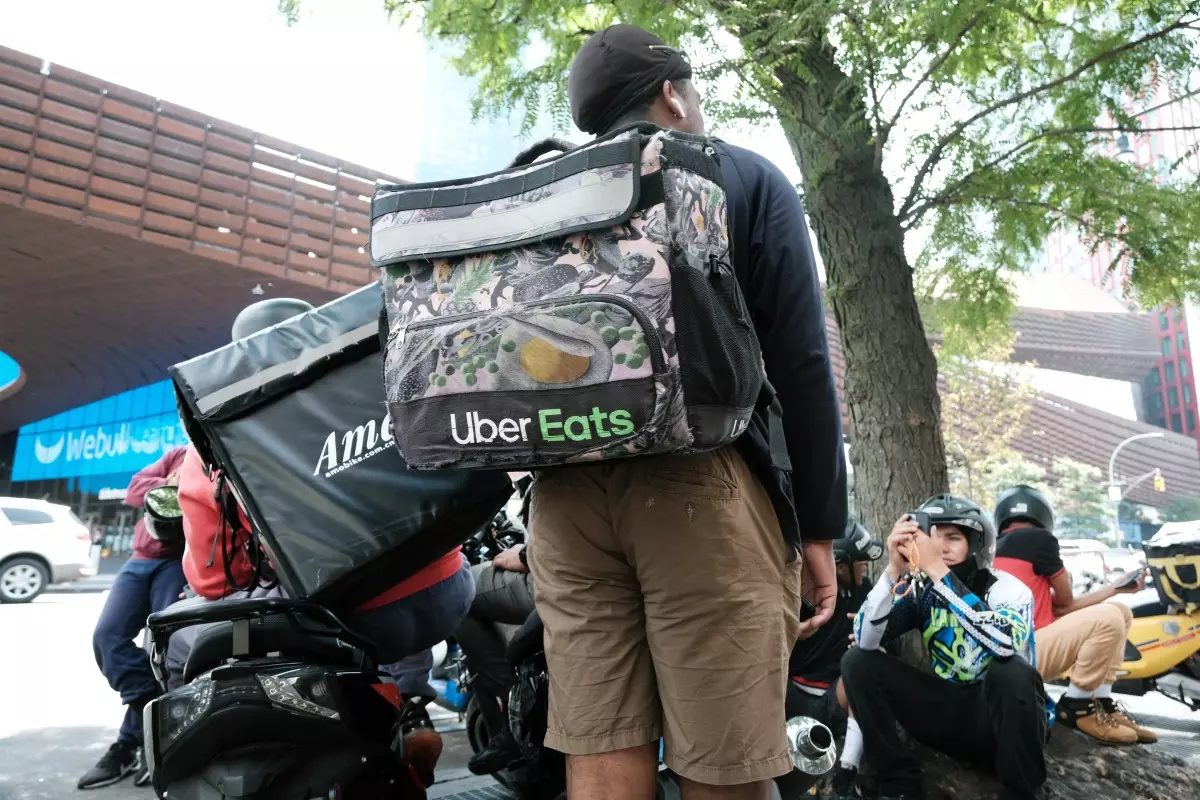The food delivery industry has become an increasingly competitive arena, especially during the aftermath of the COVID-19 pandemic, which has significantly amplified consumers’ reliance on delivery services. Uber Eats, a division of Uber Technologies, and DoorDash have emerged as leading players in this sector, often overlapping in their target customer base. With both companies offering similar services that allow consumers to order food from local restaurants via an app, the competition is fierce. However, Uber’s recent legal action against DoorDash highlights deeper issues regarding fair competition and exclusive agreements, raising questions about the ethical practices within the delivery ecosystem.
In a dramatic legal move, Uber filed a lawsuit against DoorDash in California’s Superior Court, alleging that DoorDash utilized aggressive tactics to coerce restaurants into exclusive contracts. Uber contends that these practices are stifling competition and hindering the growth and sustainability of smaller business partners within the food delivery landscape. According to Uber, DoorDash pressures restaurant operators to enter into exclusive or near-exclusive agreements for the handling of delivery orders, claiming that failure to comply could result in severe financial penalties or diminished visibility and ranking on the DoorDash platform.
Uber’s legal argument emphasizes the claim that these tactics reflect a monopolistic behavior by DoorDash, which dominates the food delivery market in the United States. By intimidating restaurant owners, DoorDash allegedly constricts their freedom to work with alternative delivery platforms, including Uber Eats, thus diminishing market competition and choice.
The response from DoorDash has been predictably assertive, labeling Uber’s claims as baseless and indicative of its struggle to compete effectively within the delivery space. The spokesperson’s remarks suggest that Uber’s challenges lie more in its service offerings than in DoorDash’s market strategies. This rebuttal underscores the complexity of the relationship between competitors in the digital economy, where tactics considered hostile or unfair may simply be viewed as strategic business maneuvers.
The differing narratives reflect the challenging balance of competition versus collaboration that exists in the gig economy. While both companies are vying for restaurant partnerships, they also rely on the same pool of customers—consumer preferences ultimately dictate success in this crowded market.
For restaurants, the implications of this legal battle are profound. Many establishments have increasingly relied on delivery services for revenue, especially post-pandemic, making them vulnerable to the pressures exerted by dominant players like DoorDash. Uber’s claims that restaurant owners feel they have a “gun to their head” due to DoorDash’s aggressive tactics highlight a troubling trend: the potential for exploitation in a market dominated by a few major players.
If Uber’s suit succeeds, it could pave the way for decreased pressure on restaurants to limit their delivery partnerships, ultimately providing them more options and flexibility. Greater autonomy could foster a healthier competitive environment, benefitting not just the restaurant owners but also the consumers who seek variety and choice in their dining options.
As the lawsuit unfolds, the food delivery landscape could witness significant changes. Should courts find merit in Uber’s claims, it might establish a precedent governing the relationships between service providers and their restaurant partners. Additionally, a ruling that addresses anticompetitive practices could invoke scrutiny on the service agreements platforms maintain with their partners across various markets.
Moreover, this legal battle could lead to heightened awareness among consumers regarding which companies uphold fair practices within the gig economy. A shift in public perception could influence customers’ choices and perhaps drive them towards companies that stand against exploitative tactics.
The outcome of Uber’s lawsuit against DoorDash holds substantial implications not only for these two giants but also for the restaurant industry and consumers as a whole. As stakeholders await developments, this case may serve as a critical juncture, prompting necessary discussions about ethical competition in an increasingly monopolized market. For now, the arbitration of competitive fairness remains in the hands of the judicial system, while restaurants and gig economy workers watch closely, hoping for a resolution that enhances their freedoms in the marketplace.

